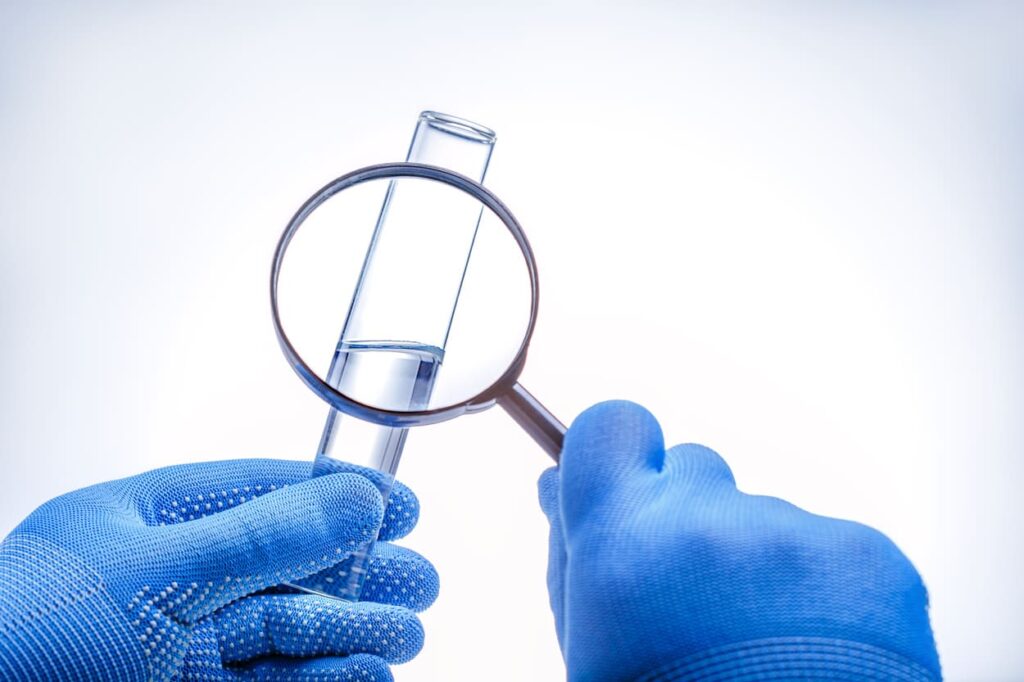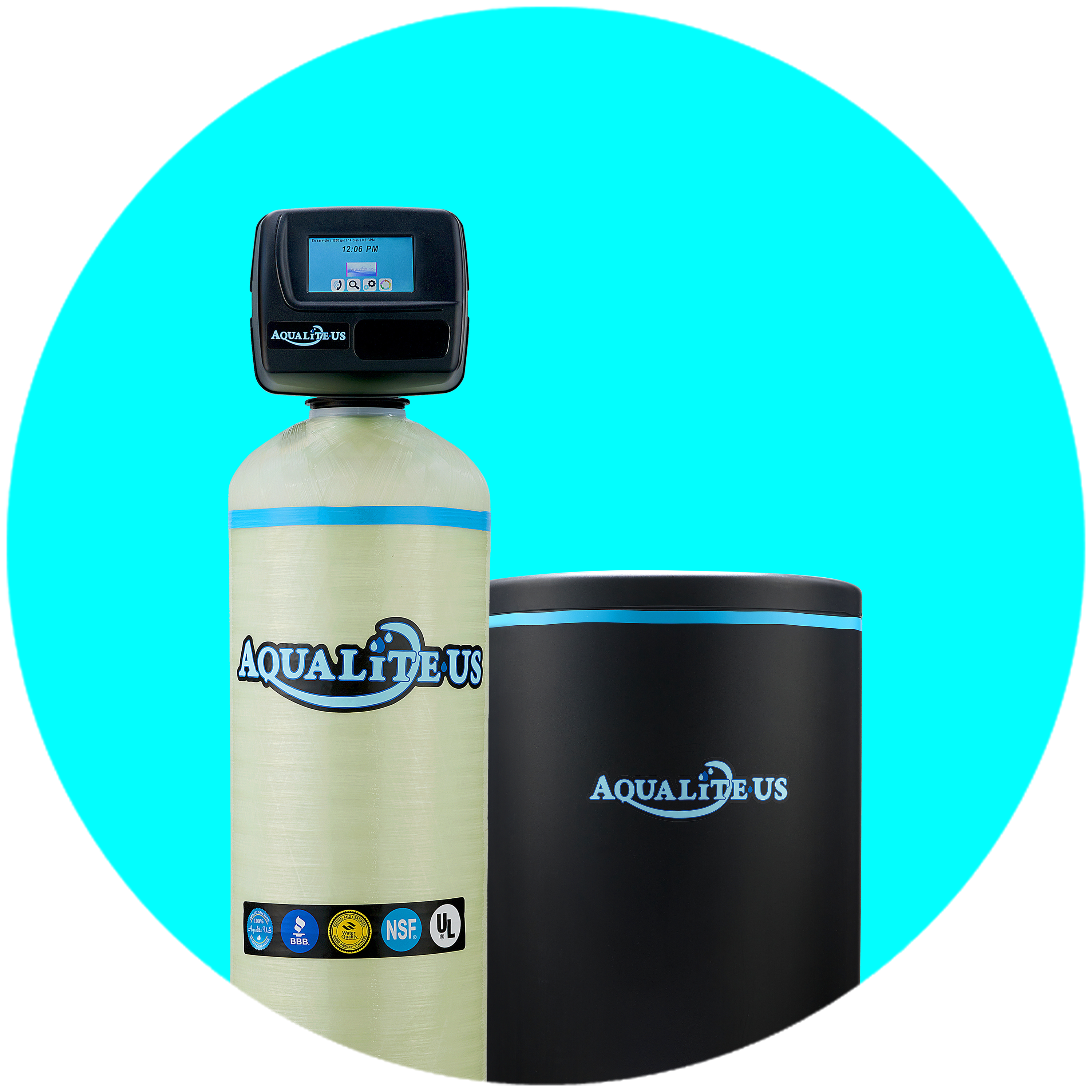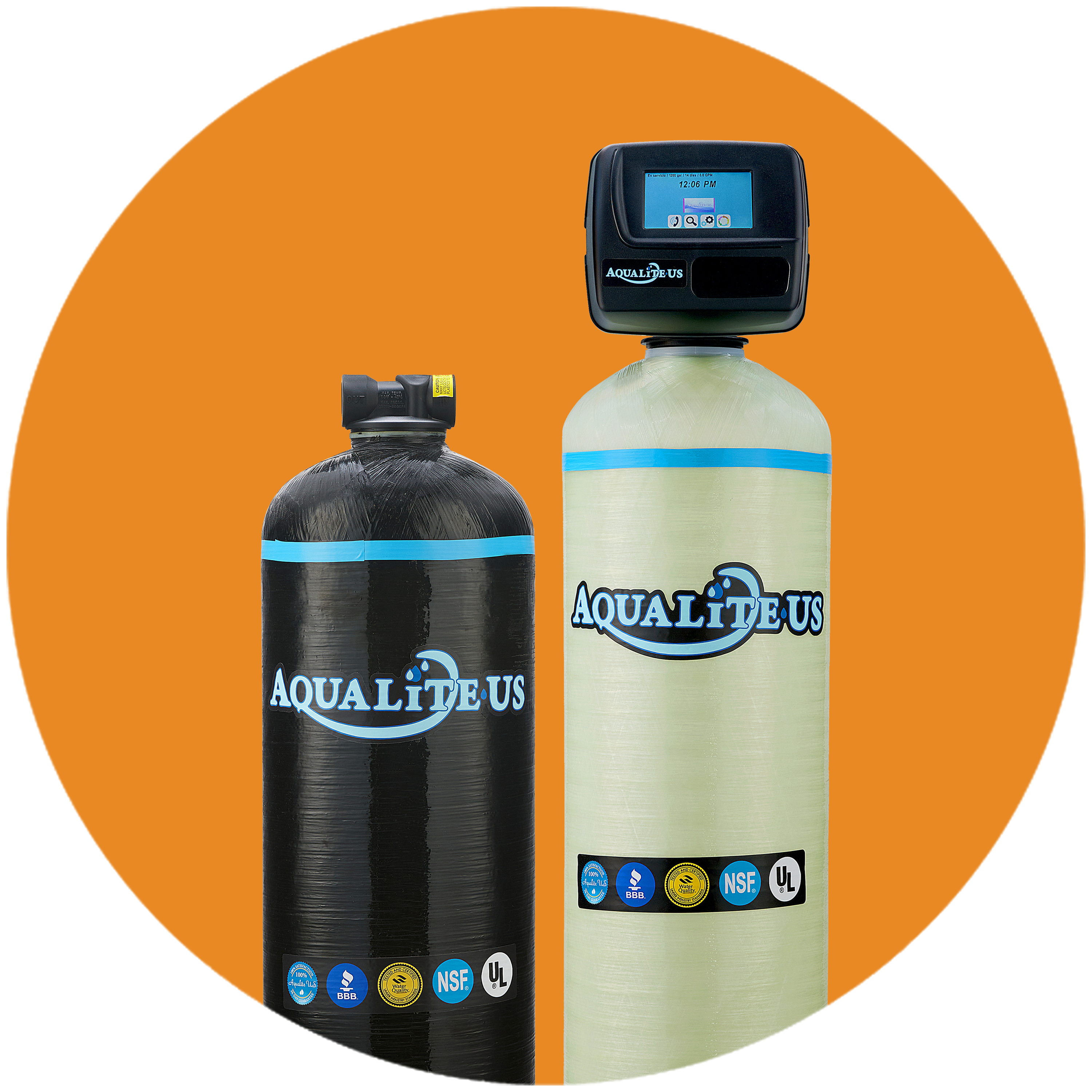Discover what could be in your water, how it affects you, and what you can do about it.
When you drink water from your tap, it may appear cloudy. While it may not taste great, poor home water quality can cause problems far beyond awful taste and appearance—it can also affect your family’s health, your pocketbook, and your home.
The average American drinks 1 to 2 liters of water per day, but water is also used for bathing, washing clothes and dishes, rinsing fruits and vegetables, and preparing food and drink. If your water is unsafe, you and your family are ingesting it in many ways, and it could interfere with your health and well-being.
Discover what could be in your water, how it affects you, and what you can do about it.
Signs of Poor Water Quality
The United States has some of the safest drinking water in the world. Public drinking water is regulated under the Safe Drinking Water Act (SDWA) through the Environmental Protection Agency (EPA). According to the EPA, there are approximately 150,000 public water systems in the US; 10 percent of homes have private wells.
Whether your water comes from your town, city, region, or a well, most of us assume that what comes out of the faucet is clean, healthy, and safe. However, no matter where your water comes from, heavy metals, minerals, chemicals, and microorganisms are always present. Even if they are at levels deemed safe according to federal water regulations, these contaminants can still impact your family and home on many levels.
Questions To Ask Yourself If Your Concern About Poor Home Water Quality
If you are concerned you have poor home water quality, ask yourself if you have noticed any of the following with your water:
Question 1: Is your water cloudy?
- Drinking water should always be clear.
- The cloudiness may be due to harmless minerals.
- If the water does not clear up, there may be bacteria in the water, so get your water tested.
Question 2: Is your water yellow, orange, brown, or has dirt or sediment?
- You may have rusty pipes or too much iron or manganese.
Question 3: Does your water smell like rotten eggs?
- You may have hydrogen sulfide in your water.
Question 4: Does your water smell like a swimming pool?
- You may have excess chlorine or chloramine, which is used in the treatment process.
Question 5: Does your water taste metallic?
- There may be excess metals in your water, including iron, zinc, or copper, or the water pipes are older or rusty.
Question 6: Does your water smell like gas?
- There may be contamination of the water supply from a leak or runoff. Stop drinking the water and get your water tested.
Question 7: Does your laundry have rust stains after washing?
- May indicate excess metal.
Question 8: Do you or your family have frequent illnesses or gastrointestinal problems?
- You may have bacteria or other contaminants in your water that make you and your family members sick.

Common Water Contaminants
Chances are, your water may not just be water. Here are some of the most prevalent water contaminants to be aware of:
- Ammonia is commonly found in municipal drinking water and is a byproduct of chloramine use. Long-term ingestion of 1 mg/l (ppm) in drinking water may cause potential health problems.
- Arsenic naturally occurs within the ground and is a byproduct of coal-burning, so it enters groundwater from existing deposits and pollution.
- Microorganisms include coliform bacteria, legionella, giardia, norovirus, shigella, and salmonella—all harmful to your health.
- Nitrates naturally occur in surface and groundwater at lower levels. However, high nitrate levels in well water often result from improper well construction, overuse of chemical fertilizers, and bio-waste disposal.
- PFAs, PFOAs, & PFOS consist of many chemicals used in industrial and consumer products for heat and fluid resistance since the 1950s. Unfortunately, these chemicals have many adverse human health effects, including cancer and thyroid problems.
Where Water Contamination Occurs
Almost all our water comes from fresh surface waters and groundwater aquifers, which is the first place where contaminants—both natural and manufactured—can be introduced into your water system. Familiar sources of contamination include:
- Industrial and agricultural activities.
- Sewer overflow.
- Malfunctioning water treatment systems.
- Naturally occurring materials.
Even public water supplies can become contaminated. Flint, Michigan, is an example of a contaminated water system that caused a widespread health crisis. While some of the substances found in public water are considered within safe parameters, you may not want your family to be exposed to them at all.
Additionally, the water quality at the public source may differ from the quality of water that comes from your tap. For example, a 2020 study by Purdue University found home water quality can vary from the source, the faucet, and between rooms and seasons.
According to Andrew Whelton, a Purdue University associate professor of civil engineering and environmental and ecological engineering:
“This study reveals that drinking water in the service line water is not the same quality at your faucet.”
“After water enters a home, it continues to age. Older water is more likely to have problematic contaminants. Because the quality of water delivered to a single home can vary significantly, and building plumbing can change the water too, predicting drinking water safety at every building faucet is currently not possible.”
That is why taking steps to clean, filter, and purify water at home with a system such as the Puronics Reverse Osmosis System is critical.
Private Well Water Issues
If you have well water, you must be particularly aware of conditions or nearby activities affecting your drinking water. The EPA has compiled this list to help you know when you should test your water for harmful contaminants:
- Recurring gastrointestinal illness, test your water for coliform bacteria.
- Household plumbing or service lines have lead; test your water for pH, lead, and copper.
- Radon in indoor air or region is radon rich; test your water for radon.
- Corrosion of pipes and plumbing, test your water for pH and lead.
- Nearby areas of intensive agriculture, test your water for nitrate, nitrite, pesticides, coliform bacteria.
- Coal or other mining operations nearby, test your water for heavy metals and pH.
- Gas drilling operations nearby test your water for chloride, sodium, barium, and strontium.
- Dump, junkyard, landfill, factory, gas station, or dry-cleaning operation nearby. Test your water for volatile organic compounds, total dissolved solids, pH, sulfate, chloride, and metals.
- The odor of gasoline or fuel oil, and near gas stations or buried fuel tanks, test your water for volatile organic compounds.
- Objectionable taste or smell, test your water for hydrogen sulfide, corrosion, metals.
- Stained plumbing fixtures and laundry, test your water for iron, copper, manganese.
- Salty taste and seawater, or a heavily salted roadway nearby, test your water for chloride, total dissolved solids, and sodium.
The EPA recommends testing your private well at least annually or more frequently if children, elderly adults, or pregnant women are in your home.
Hard Water Facts
Hard water is not considered harmful to your health, but it can still cause dry skin, dry hair, and itching. In addition, it can change the pH balance of your skin, making it more vulnerable to harmful bacteria and infection, and it may exacerbate eczema.
If you have hard water, it is likely caused by high levels of calcium and magnesium. The following signs may indicate you have hard water:
- Your hands feel slippery after washing.
- Glasses and silverware have spots when they come out of the dishwasher.
- Clothes may have mineral stains after washing, and they can wear out faster.
- You have low water pressure because of mineral buildup in the pipes.
- You do not get much lather when using soap, shampoo, or detergent, so you need to use more—ultimately costing you more money.
When you add a water softener, such as the Puronics Whole-Home Water Softener System, you will have healthier and smoother skin and hair, prevent potential plumbing problems, save on soap and detergent, reduce mineral and metal buildup in your pipes, and increase the life of appliances.
Get a Free In-Home Water Test
If you are concerned about your water quality, we will do a complimentary water test—whether you are on public water or have a private well. Our experts will test water from your tap, identify potential health risks, and recommend improving your home water quality.
We provide Puronics whole-home water softener, purification, and conditioning systems, so you have options for improving your home water quality. Contact us, and we can help you find the best solution for clean, soft, and safe tap water for your family!



